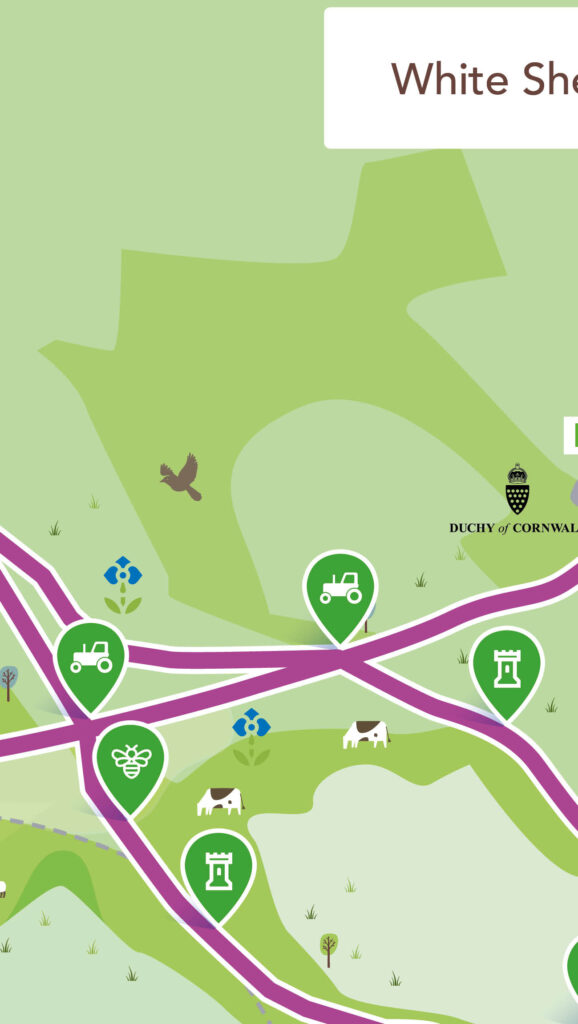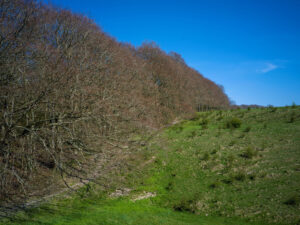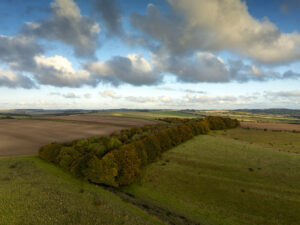
Caterpillar Wood

Caterpillar Wood – photo credit: Charles Sainsbury-Plaice
The area of woodland next to you is called Caterpillar Wood, given its appearance from a distance, as a large caterpillar crossing the downland!
A band of woodland can be seen in this location on historic maps dating back to the C19th, but the woodland was expanded in the late 1990s to what we have today.
This woodland comprises mainly of Beech trees which are sometimes called ‘the Lady of the Woods’. This beautiful tree arrived during the Bronze Age and thrive on chalk soils.
Due to its dense canopy, rarer plant species are associated with Beech woodland, such as box, coralroot bittercress and a variety of orchids, including red helleborine.
Beech timber is suitable for a variety of purposes, including fuel, furniture, cooking utensils, tool handles and sports equipment. The wood burns well and was traditionally used to smoke herring. The edible nuts, or masts, were once fed to pigs, and in France the nuts are still sometimes roasted and used as a coffee substitute.
Nature

– photo credit:
Fauna
Beech woodland provides an important habitat for many butterflies, particularly in open glades and along woodland rides. Beech foliage is eaten by the caterpillars of moths, including the barred hook-tip, clay triple-lines and olive crescent. The seeds are eaten by mice, voles, squirrels and birds.
Because Beech trees live for so long, they provide gnarled and knotted habitats for many species, including the tawny owl, woodpeckers and wood-boring insects. The bark is often home to a variety of fungi, mosses and lichens.
Beech is very susceptible to damage from grey squirrels who strip the bark and can kill young trees. This threat may make regenerating beech plantations difficult where grey squirrel populations are not managed.

– photo credit:
Fungi
Bearded tooth fungus (Hericium erinaceus) is a species of conservation concern that relies on beech woods in the south of England. It grows on the deadwood of fallen trees and on the trunks and large branches of standing trees, especially old, veteran or ancient individuals.
Countryside Code
Respect everyone
- Leave gates as you find them.
- Do not block access to gateways when parking.
- Be polite to others and share the space.
Protect the environment
- Take your litter away with you – this includes dog poo!
- Keep dogs under control and in sight.
- Care for nature and don’t cause any disturbance.
- Do not light fires or BBQs.